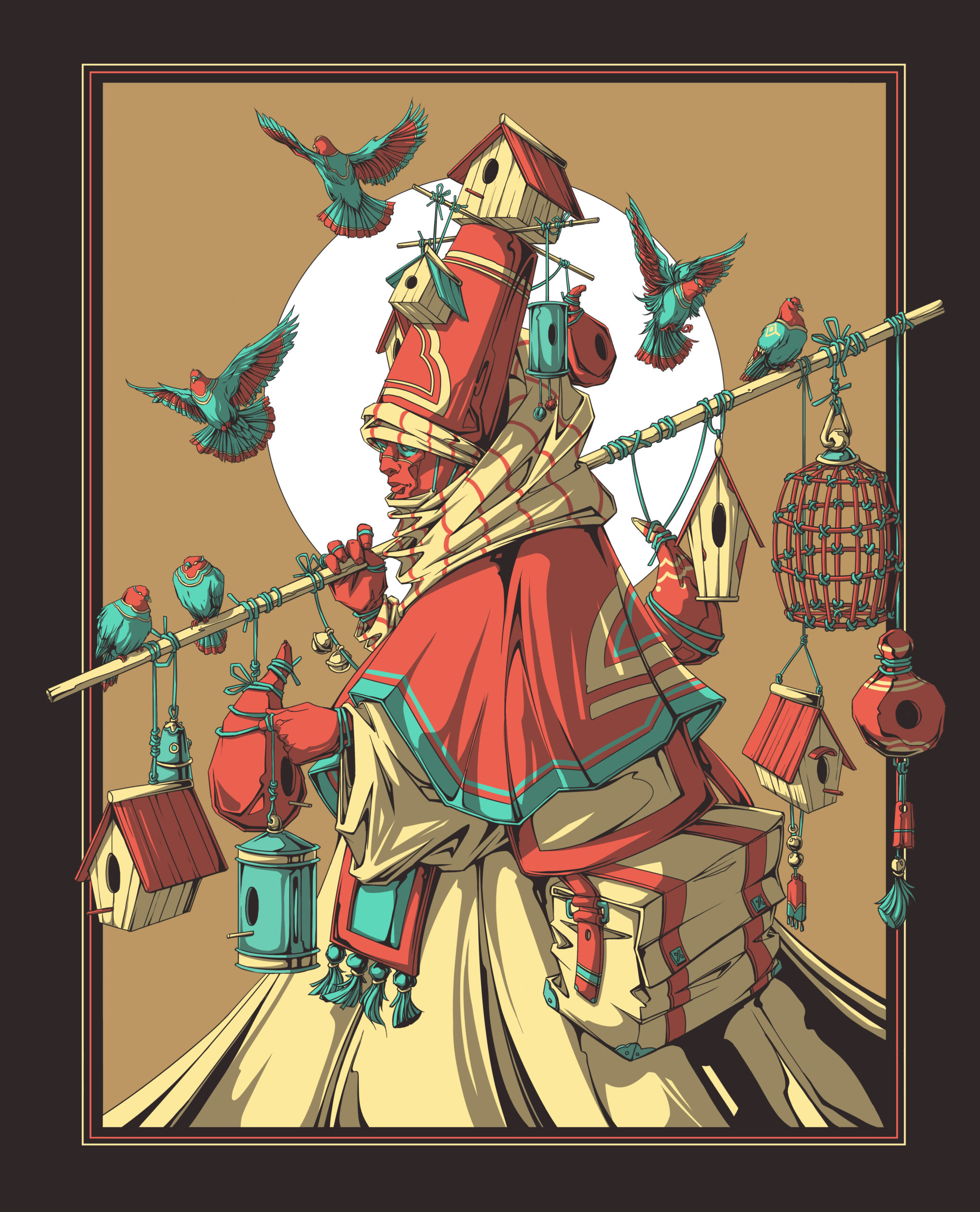Speaking with Colorado-based artist Mike Fudge, there is an instant recognition of his humility. When asked about his rituals and routines as a tenured artist, he casually mentions a 2-3 hour daily drawing practice that he upholds. There is no ego when Fudge mentions his illustrious list of clients (which include Pearl Jam, Blink-182, and Dave Matthews Band). Over the past 11 years, Fudge has established himself as a leader in the illustrative art space. Rooster Magazine sat down with Fudge to talk about going solo, becoming your own boss, and the unspoken reality of luck in an artist’s life.
Were you always artistically inclined, or did you find that path later in life?
I always liked to draw. I drew when I was a kid, mostly things I was into at the time like comics and anime, but I had no serious ambitions to do art until I was in my twenties. So I definitely came to it a little later than most people who get into this industry, I think.
Do you recall a specific moment in your life that opened your eyes to the possibility of art as a career path?
I used to play in a band which was hard to navigate because the success was related to the whole group, not just one person. When the band fizzled out, it was disappointing to me. That’s why art was appealing, because I loved the idea of something that couldn’t be interfered with. It would just be on my shoulders. I was exposed to murals and graffiti around that time too, and that just really took off for me and became my primary interest.
How would you describe the experience of finding community as a self-employed, solo artist? Do you find that you’re able to talk and relate with other artists in the Colorado community, or do you enjoy the solitude of it?
I like both, no doubt, but I spend a lot more time in solitude. There’s not a lot of artist community where I live, but I do love the community aspect of working with clients. A solo career became the preference and it is, but I do actually really enjoy working with other people to make art. I feel really fortunate in that I get a lot of work that is pretty open-ended. There is, of course, a dialogue that happens or sometimes there is a certain need, but I really have the freedom to make pretty much whatever I want.
What have you learned about yourself as an artist and business owner through having this level of creative and professional freedom?
This job requires planning and discipline. I’m making my own schedule and have to understand that I have to be accountable for my own work. I don’t think I was that great at the structure aspect initially. I know some people might come a little easier, but in my case, it took a lot of trial and error. I was terrible at it for long periods of time, but fortunately, I’ve got to the point where the way that I do things now, it works for me. I had to tone down the majestic free art thing in exchange for some practicality.
Your portfolio includes concert posters for Wu-Tang Clan, Blink-182, and Pearl Jam, as well as national commercial clients like Kaiser Permanente and X Games — for artists reading this, how do you secure such high profile clients, and what’s the trick for maintaining them?
Social media exposure definitely helped, and doing concert posters is a great way to get a lot of eyes on your work. Honestly, I don’t want to claim pure serendipity or a strike of luck, but there’s a big element of that. I don’t ever hear people talk about that, but it’s a factor, no doubt.
Why do you feel like “luck,” “serendipity,” or “right place, right time” is seldom discussed when talking about an artist’s success?
I almost envy people who take all the credit for their success and completely deny the factor of luck. That would be nice to feel that way, but I can’t deny the role good fortune has played in my life. I think effort and luck are both part of it, you just have more control over the effort you put in. Even if you do get lucky enough to have a big break, you still have to hit your targets and meet deadlines. But I don’t think it diminishes your work to admit you got lucky along the way, I know I did.
What would you say to an up-and-coming artist who is still waiting for that lucky break?
Reach out for guidance or advice. I didn’t do that at first because I didn’t know anyone doing what I was doing, but it can really help. Also, make yourself someone that the client can rely on because it’s a really unreliable industry in general, I think. It’s hard to systematize art, and so I’m sympathetic to it and I struggle with it still and always will, but I do try to make it the people that I work with. I try to be the reliable one.
How have you kept yourself motivated to keep going after all these years?
I don’t really feel like I have another option. I know I could find something else to do for a living, but doing anything other than this art would be a dissatisfying life.














Leave a Reply
You must be logged in to post a comment.